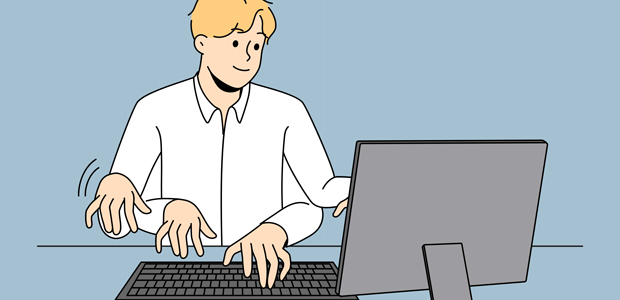
How you can really stay as productive with a shorter working week
Less is more, someone wise once said. And with the world’s biggest trial of the four-day work week underway in the UK, many entrepreneurs and start-up directors are asking the same thing: could we do the same work in less time? If the idea of dropping a day makes you lose sleep, fear not! There are many ways to help you be just as productive- and maybe even more- with a shorter working week.
Since the start of the working world as we know it, it’s been universally difficult to strike a healthy work-life balance. This juggling of professional performance and personal responsibilities has become even more challenging after many of us adopted working-from-home during the pandemic. Without a definitive shape to the work day, the scope of working hours has blurred.
For instance, in the UK, employees work an average of two more hours per week than many of their European neighbours. But this culture is being challenged by the world’s largest trial of a four-day work week, which started in the UK in June. It is being driven by a change in attitudes from employees who now want to work less and with more flexibility.
This is a positive step towards improving workers’ wellbeing while also doing away with the ineffective habit of clocking in but not actually getting much done. At the same time, we also need to ensure that companies maintain the same output levels to keep moving forward.
Get organised
It may sound simple, but creating an organisation system is the lynchpin to being economical with time. With a shorter working week, it is important to spend less time in meetings and to get more out of your workdays. There are many options to choose from based on your specific needs.
Productivity tools like Evernote can enable you to combine your tasks, schedule visibility, and information collection and retrieval into one access point, making it easy to organise every aspect of your life. Using a single source of truth allows you to save time otherwise spent clicking through tabs and switching apps, and reduces the likelihood of getting distracted. This means you can accomplish more. Also, use notifications and set reminders for tasks to keep you on track.
Set a realistic schedule
With one less day in the work week, your time is even more finite, and you need to focus on the most necessary tasks. Therefore, you need to devise strategies to make your day more efficient.
Avoid “busy-ness”, which is the act of appearing busy when you’re not actually being as productive as you could. The need to show how ‘busy’ you are just makes for overworked and unproductive employees, wasting resources and time. To overcome this, create solid checklists where tasks are organised in priority and used together with the likes of the Eisenhower model - where tasks are sorted in four buckets based on urgency and importance.
Review your completed tasks at the end of your workday and set realistic goals for the next day based on priority. However, no one can do their best work without regular breaks. Include time for breaks to grab a drink, eat a healthy meal, hang the washing out or go for a walk. Your brain needs to recharge as much as your laptop does.
Know when to switch off
It’s important to be disciplined with having that fifth day as a non-working day. Don’t get into the habit of leaving tasks for that day or ‘quickly checking emails’, as that defeats the purpose. Play around with when you work too. You may like a day off midweek or a longer weekend instead.
Use this time to restore your energy levels to fuel better productivity. Figure out what’s the best way to recharge. Maybe it’s exercising, sleeping in for an hour, catching up on personal admin, or housework. The goal of this extra day allows you to be more rested and focused at work rather than tired or trying to fit in personal tasks as well.
The most important thing to remember is that working smarter, not harder is the key to productivity. It will be interesting to see how much firms benefit from having the four day week. Having refreshed, energised, motivated employees will do wonders for an organisation and its success.

